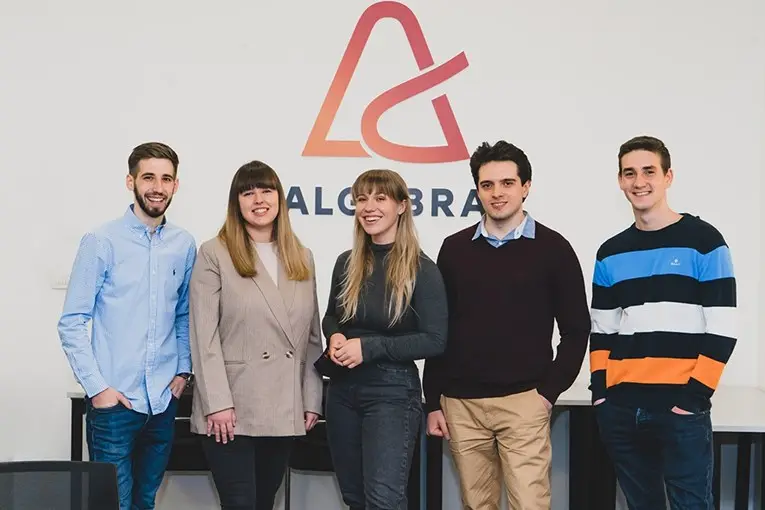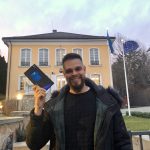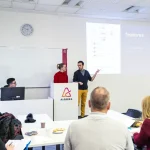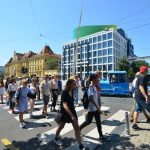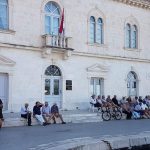A team of graduate students from Algebra University College, “The Nomads,” has developed an application that makes it easier for digital nomads to navigate the country they have chosen while answering all practical and operational questions about life in the country, reports Index.hr.
There has been a lot of talk in Croatia to attract digital nomads to live and work in the country, which has been successfully implemented in terms of regulations that allow individuals in Croatia. Thus, Croatia became one of the first countries globally with such an elaborate program for attracting digital nomads.
It is this idea that the Algebra University graduate students decided to explore and expand in more detail, where an innovative project program has recently been implemented as a compulsory course in all graduate studies.
Students acquire entrepreneurial skills during this two-year graduate study program and go through a program similar to waiting for startups in each incubator; they also have mentors available to advise them. There are no exams, no tests, but each individual’s contribution is evaluated as well as the overall team result – which together represents an innovative way of practical teaching that we have not had the opportunity to see so far.
A unique part of this project is that it brings together students from various graduate studies conducted by Algebra University – software engineering, digital marketing, and data science – so students meet with different skills and different previous education, who often did not have the opportunity to get acquainted earlier in their studies, which makes exchanging ideas, knowledge, and working on the project much more exciting and fun.
“Our motto is that students through this course should learn how to reach the goal – after that, each new endeavor is a step forward for them, and they have a clear feeling that they will succeed; it’s just a question of when. In other words, it’s just a matter of their persistence,” emphasizes Maja Brkljačić, one of the course leaders and head of business development in the longest-lived and most relevant startup incubator in the country, Algebra LAB.
One-stop-shop for digital nomads
Seven members of the “The Nomads” had fun studying the lifestyle of digital nomads, which led to the idea of developing a web application, “Nomad Rescue,” a one-stop shop for digital nomads. Their research of the problems digital nomads face has shown that it is challenging to relocate to another location for some. In contrast, for others, the situations they face after relocating are much more challenging.
Andro Žonja and Ivan Jakovljević, graduate students of software engineering, Nina Tudor, Marta Krznar and Filip Puljić, graduate students of digital marketing, and Antonio Akrapović and Mateja Novaković, who are studying at the graduate study of data science, designed an application that would quickly and efficiently offer nomads reliable information on various topics.
Nomad Rescue is designed as a social network that integrates a program to search for accommodation for longer stays. Its users will be able to use this social network as a tool to meet other digital nomads in their location and thus find roommates. It will also feature an accommodation search tool for those nomads staying for a more extended period and a module that students call a “virtual guide” that will allow users to integrate into the new environment more easily.
“It is a platform that tries to facilitate the selection of a new living environment, finding accommodation, reviewing the content offered by nearby locations, and meeting other nomads through the social network,” explains Ivan Jakovljević.
“I came up with the idea almost a year before we started this project,” says Nina Tudor, a graduate student in digital marketing and leader of the team.
“I follow people who travel and work and live the life of a digital nomad, and that is something I would personally like to do in a few years. I wanted to do this for myself, and as the trend of living as a digital nomad is constantly growing, I knew it could be interesting to others. The idea was perhaps too ambitious for independent production, so I am thrilled that others recognized the idea and, in this way, it came to life. Of course, the idea went through a couple of phases of changes, and in the format in which it is today, everyone in the team deserves credit,” explains Nina.
The digital nomad trend is constantly growing, especially since the pandemic started. Many employees do not want to go back to offices, and companies must adapt to new labor market demands. “The pandemic has accelerated the trend of working from home, which enables employees from the IT sector and related professions to travel and stay in other areas. Maybe because of the climate, lower living costs or simply because they are interested in other cultures,” says Ivan Jakovljević.
Nina says that she spent many years working in tourism and talking to people from different countries, so she concluded that many tourists like to stay in Croatia and return from summer to summer. “That’s why I wasn’t so surprised by the interest in the digital nomad program in Croatia. Moreover, I’m happy that people like Jan de Jong recognized the importance of such a program and made an effort to make it happen,” says Nina Tudor.
Although Croatia is one of the first countries to introduce a program for digital nomads, the application was designed by students to be easily applied to any country.
“Of course, data entry is a challenge in such cases, but our application relies heavily on global information repositories offered by Amazon and Google,” explains Ivan Jakovljevic.
“We believe that local governments or tourist boards could use the application to promote their locality towards digital nomads. One of the best indicators of how much a certain environment is favorable to digital nomads is the availability of information in digital form,” says Ivan.
Mentors who help the student team develop the project say that it is logical to recognize this topic.
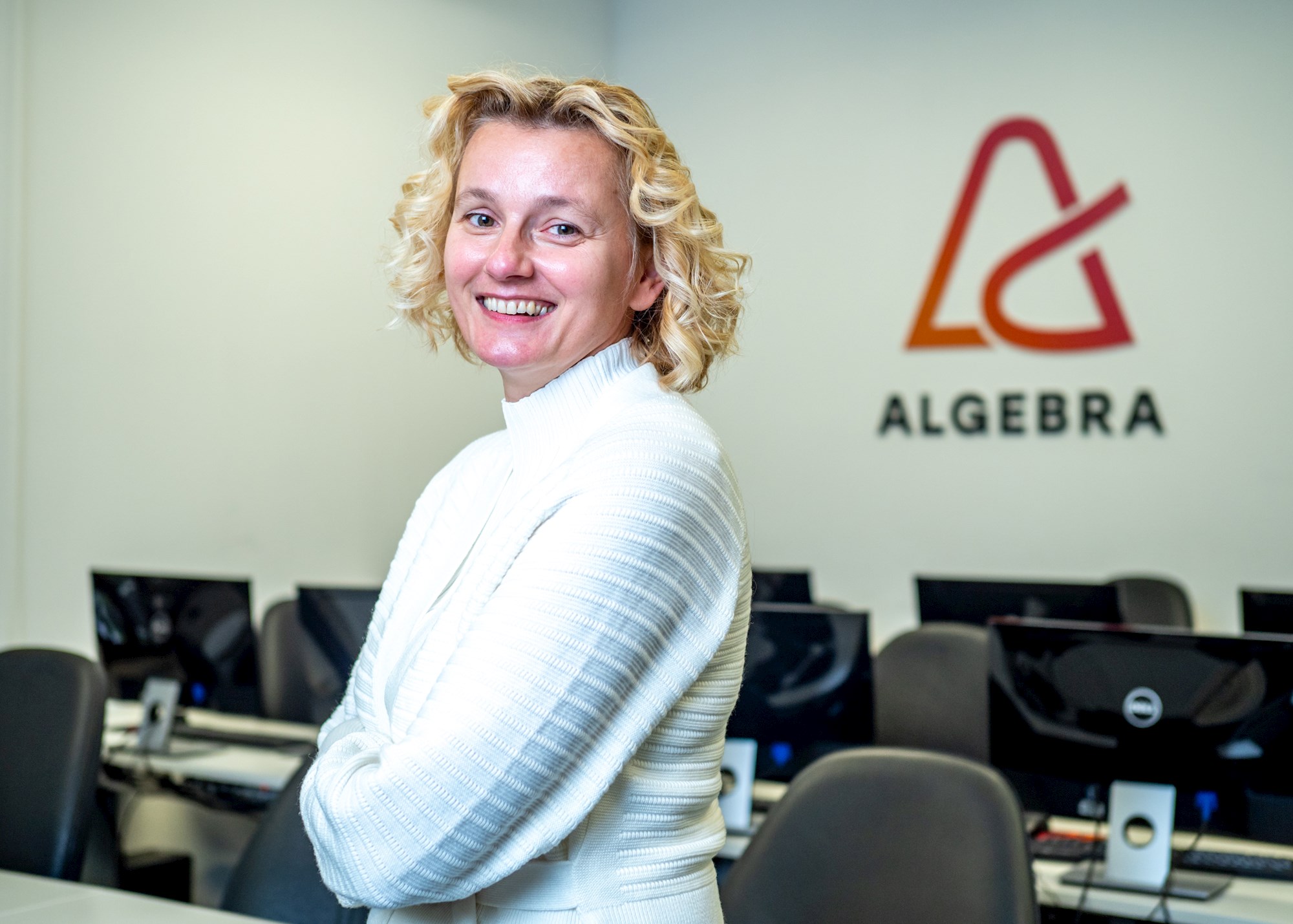
“It is expected and quite logical that the students of this generation decided on this topic because the idea of digital nomads is something that will be very prominent and present in their work experience. Moreover, Algebra students from abroad are also digital nomads, in a way. Currently, we have 2-3 startups in Croatia working on this topic, so it is very hot, and the need for such a platform is real,” emphasizes Maja Brkljačić.
Such projects, once launched, can significantly contribute to the country’s success and attractiveness as a destination for digital nomads. These people travel efficiently and quickly, change their geographical location, and just as easily and quickly need to get the critical information. The project is set up in a scalable way. It can be easily replicated to other countries, which is crucial for finding sources of funding because VC funds and EU funds strongly prefer global or at least European solutions.
“From this group interdisciplinary project, I learned a lot about the marketing side of development and product design itself. I also received knowledge from colleagues in the field of data science about the use and management of information and how to implement it in our product,” says Andro Žonja, a programmer who develops the back-end, i.e., the server-side of the application, which consists of a layer with business logic and a database and enables communication internally and with the client part of the application.
On the other hand, one of the future graduates of data science, Mateja Novaković, also says that “interdisciplinary cooperation is quite common today and is encouraged in all spheres of life and work.” She liked working with fellow program engineering students because it allowed her to go beyond the tasks she has as a member of the data science team.
“I think this is one of the more important subjects because it prepares us for a real labor market where at some point we will need to work with people from different industries and different ways of thinking. So it is exciting for me to work on the project because of all the knowledge that I will get, not only from the mentors we work with but also from colleagues in the team,” emphasizes Nina Tudor.
Antonio Akrapović says that just like any other team working on a project, without a reasonable exchange of knowledge and skills, “the project could not even start, so this synergy and exchange of opinions is crucial.” Antonio was in charge of the data collection strategy and its application from data science to improve the user experience when searching for the desired service most efficiently.
But just like in the real world, not everything is always ideal – and one learns through challenges. Ivan Jakovljević especially emphasizes good communication as a prerequisite for integration and the success of each team:
“The fact that members come from different educational backgrounds enriches ideas and views on the problem, but also sometimes makes communication difficult. As a result, each newly formed team has a relatively low level of efficiency given the potential of its members. Over time, the team adopts a common language manifested in norms and a clearly defined work process. Only after that step can the team realize its potential. However, to get to that point requires quality communication and overcoming certain obstacles, which is challenging to learn from books but requires the experience of teamwork.
The mentor’s task is to help the team with their knowledge and experience during the two years of project development. Of course, there are always several challenges.
“The biggest challenges arose with project modules that students have not dealt with so far, such as security aspects and the use of certificates, and data collection, which made it difficult to analyze and evaluate such tasks because students did not have reference experience with similar functionalities,” says Aleksander Radovan, Algebra lecturer and expert in Java software solution development. But such situations are good because students have the opportunity to acquire knowledge that they have not yet encountered while studying or working on real projects.
Aleksander Radovan advised a team of students in the segment of software engineering and the use of current technologies in developing solutions.
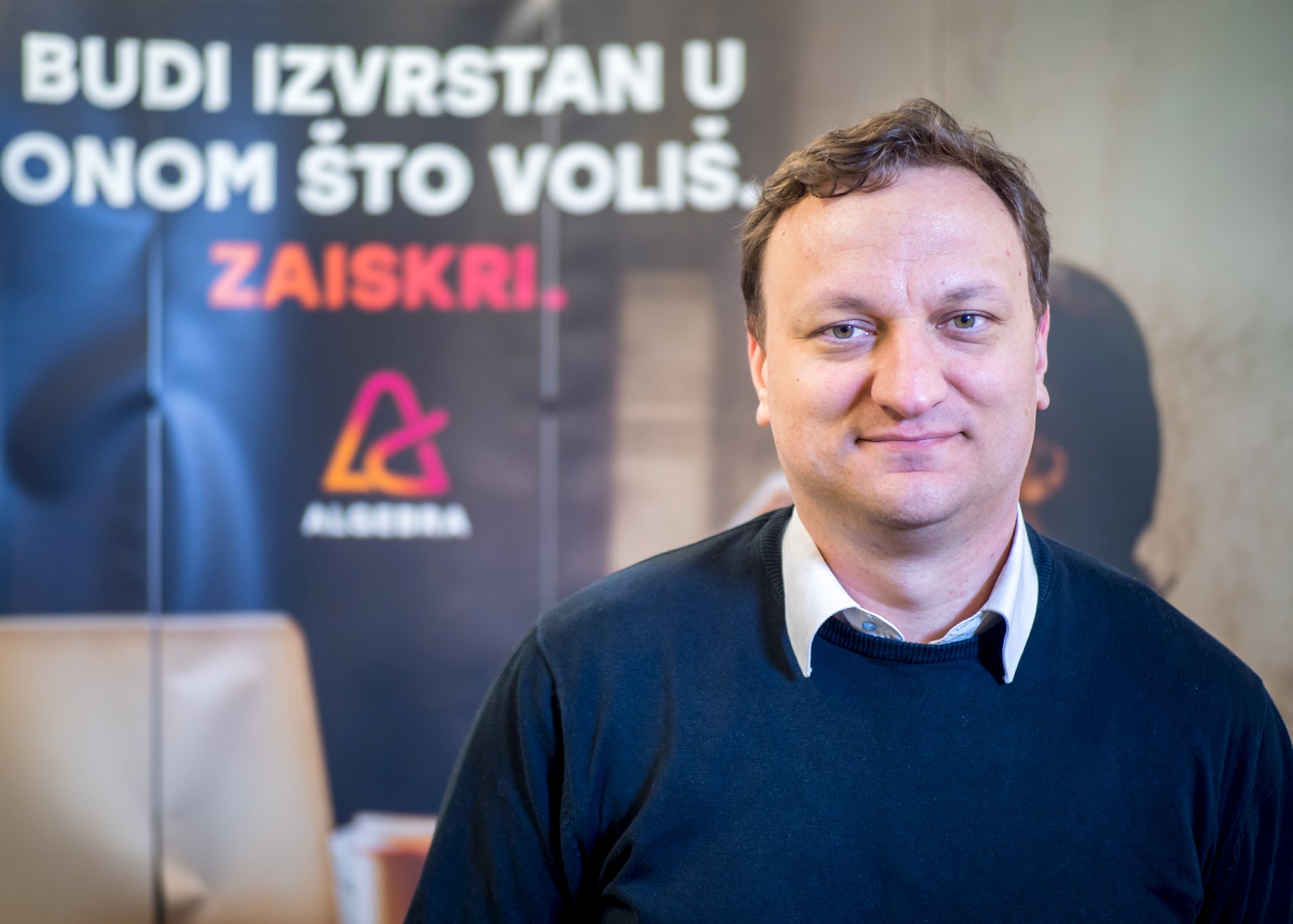
“In such situations, we helped students by adding a task related to research and development – R&D – and, after discovering how they can implement certain functionality that was a challenge for them, in the next project sprint, i.e., intensive work with a mentor, I can add the job of creating specific functionality,” explains Radovan.
It is crucial, just like with any other startup, that students avoid pitfalls when developing projects.
“Most startups are designed in a way that their founders start from their own needs, believing that if the product is helpful to them, then it will probably be beneficial to others. However, such an assumption needs to be verified or validated by market research, which is a rather complicated procedure.
Our biggest challenge was to check if our ideas seem helpful to other people and try to rank them according to market interest,” says Ivan Jakovljević.
Finally, how to successfully launch a new web application with such international solid competition arises. Maja Brkljačić, Business Development Manager at Algebra LAB and who has extensive experience in mentoring and organizing the incubation process for many startups, can offer advice not only to this innovative team but also to others working on similar projects in their startups.
“First and foremost, I would say: know your customer. The market for mobile applications, but also web applications, is a shark pool. In October this year alone, 69,000 new mobile appointments were announced on the Google Play Store. So for someone to want to install your application on their mobile phone or use your web service, they must be motivated,” emphasizes Maja Brkljačić.
Then “you need to know how to reach that user; how they can find you among more than half a million new applications a year.”
“I would say that the communication process must be as fast and simple as possible – the digital age does not suffer delays, technical problems, waiting. Which means your app needs to work perfectly. In other words – it is better to have a smaller number of functionalities when entering the market, but the degree of their refinement is as high as possible,” she concludes.
Ultimately, the “Nomad Rescue” team gains valuable and vital experience and knowledge of how developing such a project in practice looks. Although this knowledge is, for the most part, actually an extension of what has already been learned during their studies, they emphasize that it is always necessary to acquire knowledge outside the formal educational process.
“It is necessary to acquire knowledge independently and outside the framework prescribed by the study curriculum. However, the knowledge we gained from different subjects proved extremely useful in certain application development steps. For example, in the field of software engineering, these are topics such as how to organize large amounts of data to be easily accessible for analysis, how to containerize an application to run on multiple computers, cryptography for sensitive data protection, and other technical topics that are crucial for the success of our project,” sums up Ivan Jakovljević.
This course teaches students to neglect their domain specializations in one section and look for a common language with other colleagues.
“We ask them to participate, as much as possible, together in working on different tasks: so software developers have to start communicating with end-users, which is a very new and often surprising experience for them. At the same time, product developers develop a functional specification and face, for example, how difficult it is to make changes to functionalities once they have been developed. So tomorrow, when they will work on similar complex projects, we expect that our students will communicate much better and understand their colleagues in other departments,” concludes Maja Brkljačić.
To read more about lifestyle in Croatia, follow TCN’s dedicated page.

